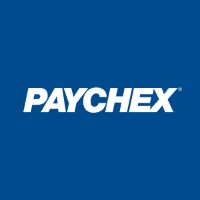- Best overall: Gusto
- Best value for price: OnPay
- Best for growing businesses: Paychex
- Best HR features: ADP RUN
- Best contractor payments: Square Payroll
- Most affordable: Wave Payroll
- Best global contractor payroll: Papaya Global
QuickBooks Online Payroll is a popular choice for payroll software thanks to its user-friendly platform, full-service payroll, well-rounded features and seamless syncing with QuickBooks accounting software.
That said, some businesses will want an alternative that costs less, one that offers more tools or one that can handle international payments. Whatever your reasoning, we’ve found some great alternatives to QuickBooks Payroll for all kinds of needs.
Featured partners
Top QuickBooks Online Payroll competitors and alternatives: Comparison table
Your payroll software needs to fit your business’s budget while also meeting your team’s needs. The table below can help you figure out which QuickBooks Payroll alternative can do both.
| Starting price | Global payroll | 24/7 customer support | Benefits administration | Free trial | ||
|---|---|---|---|---|---|---|
| QuickBooks Payroll | $45/mo. + $6/person | No | Yes — for 2 highest plans | Yes | 30 days | |
| Gusto | $40/mo. + $6/person | Contractors only | Yes | Yes | No** | |
| OnPay | $40/mo. + $6/person | No | No | Yes | 3 months | |
| Paychex | $39/mo. + $5/person | Add-on | Yes | Yes | No | |
| ADP Run | Custom | Add-on | Yes | Yes | 3 months | |
| Square Payroll | $6/person | No | No | Yes | No | |
| Wave Payroll | $20/mo. + $6/person | No | No | No | 30 days | |
| Papaya Global | $25/employee/mo.* | Yes | Yes | Yes | No | |
| *Starting price for businesses with 101+ global employees. Price decreases to $20/employee with 501+ employees and $15/employee with 1,001+ employees. **Gusto currently offers a one month free discount on your invoice after you subscribe and run your first payroll. Other terms and conditions apply. |
||||||
Top QuickBooks competitors
All the best QuickBooks Payroll alternatives offer full-service payroll, just like QuickBooks itself does. As you’ll see, though, they all manage to set themselves apart with their unique blends of features, strengths and drawbacks.
Gusto: Best overall

Gusto is our favorite QuickBooks Payroll alternative. It has many of the same perks as QuickBooks, like ease of use, automated tax filings, wage garnishments (so you don’t make costly payroll mistakes) and employee benefits. Gusto does some things better, though. Most plans include time tracking and project tracking, rather than making them paid add-ons like QuickBooks does. Likewise, Gusto offers talent management tools with all plans, making hiring and onboarding easier on you.
Another bonus? Gusto offers an affordable contractor-only plan, making it a much cheaper option for many businesses. And even if you need to pay employees, Gusto’s has a more affordable low-tier plan than QuickBooks does. So between the features and pricing, Gusto is the best payroll option for most small businesses.
Pricing
Gusto offers three tiers of its payroll software:
- Simple plan: Costs $40 per month plus $6 per person.
- Plus plan: Costs $80 per month plus $12 per person.
- Premium plan: Plan pricing available by request.
Alternatively, you can save with Gusto’s plan just for contractor payments:
- Contractor Only plan: Costs $6 per contractor for your first six months. After that, it costs $35 per month plus $6 per contractor.
Features
- Full-service payroll with flexible payroll schedules.
- State and federal tax filings.
- Comprehensive health and financial benefits.
- Payments to international contractors.
- Time and project tracking.
Pros
- Unlimited payroll runs every month.
- More affordable contractor-only plan.
- Wide variety of benefit options, including health insurance, 401(k) and commuter benefits.
- Hiring and onboarding tools included with all plans.
- Extended support hours with 24/7 support on some plans.
Cons
- Relatively high per-employee cost.
- No health insurance administration in 13 states.
- No employer-facing mobile app.
For more information, read the full Gusto review.
OnPay: Best value for price

If you don’t like QuickBooks Payroll’s pricing model, with its various plans and extra fees, you may find OnPay a refreshing alternative. OnPay includes everything in its price ― and there’s just the one. Everyone gets the same plan with the same features, so you never have to worry about whether or not a specific feature will cost you extra.
OnPay’s simple pricing still gives you plenty of payroll bang for your buck. Aside from full-service payroll, you’ll get access to a nice set of HR features and software integrations. As an added perk, OnPay offers white-glove setup to get you started ― at no extra cost to you. So even if OnPay isn’t the most powerful payroll software or the cheapest, it has a great balance between pricing and features.
Pricing
OnPay has just one plan, with all features included. It costs $40 per month plus $6 per person.
Features
- Full-service payroll with unlimited monthly runs.
- HR tools including onboarding, productivity and PTO management.
- Free account setup, including wage and employee data migration.
- Health insurance brokering in all 50 states.
- Integrations with popular accounting, time tracking and 401(k) software.
Pros
- Simple pricing with no add-on fees or surprise charges.
- Up to three free months of OnPay upon signup.
- Industry-specific tools and expertise for verticals including accountants, agriculture, dentistry and more.
- Customizable PTO management, including flexible accrual policies and time off requests.
- No extra fees for multi-state payroll.
Cons
- Less scalability than competitors due to the single plan.
- No way to run international payroll or pay international contractors.
- No phone or live chat support on weekends.
For more information, read the full OnPay review.
Paychex: Best for growing businesses

If you worry your business will outgrow QuickBooks Payroll, consider Paychex as an alternative. It offers full-service payroll, sure (as do all the providers on this list), but Paychex also offers way more than that. That makes it highly scalable compared to many payroll providers ― but not too overpowered or expensive for smaller businesses.
For example, you can always start with a lower-tier Paychex plan. You’ll still get feature-rich payroll, including a variety of employee payment methods, extensive HR resources and top-notch reporting tools. As you grow, you can choose to add employee benefits. Maybe you’ll upgrade your plan to get a suite of HR tools or even an LMS (learning management system) to complement your payroll. The point is, wherever your business is in its growth cycle, Paychex can keep up.
Pricing
Paychex has three plan options:
- Essentials plan: Costs $39 per month plus $5 per person.
- Select plan: Customized pricing.
- Pro plan: Customized pricing.
While each plan comes with its own set of included features, you can also add on extra tools to lower-tier plans. And even on the highest-tier plan, some tools (like employee benefits, attendance and document management) are available only as add-ons.
Features
- Payroll processing, including pre-payday check reviews for employees.
- Variety of options for employee pay, including direct deposit, paper checks and prepaid cards.
- Comprehensive HR features for hiring, onboarding, training and more with higher-tier plans.
- Option to add employee benefits, business insurance and other tools.
- Learning management system (LMS) with higher-tier plans.
Pros
- Powerful analytics tools, including customizable reports and templates.
- Mobile apps for both employees and employers.
- Many existing software integrations along with APIs to create more.
- Wide variety of employee benefits available, including EAPs and financial wellness programs.
- Excellent library of HR resources with all plans.
Cons
- Higher cost than most competitors.
- Extra cost to handle tax forms like W-2s and 1099s.
- Additional fees for tools like time tracking, benefits management and integrations.
For more information, read the full Paychex review.
ADP RUN: Best HR features

QuickBooks Online Payroll includes HR support with its mid- and high-tier plans. But for businesses that want to get more than nominal HR features, we suggest looking at RUN Powered by ADP. It has a better range of HR tools than any other payroll software we’ve found. All plans, for instance, come with valuable features for hiring. Some, like new-hire reporting (for compliance reasons), you can find from other payroll software. But few competitors offer background checks like ADP does.
Higher-tier ADP RUN plans give you even more robust hiring features, including ZipRecruiter and applicant tracking. You can also save time with a collection of HR documents and an employee handbook wizard, attract top applicants with salary benchmark info and stay compliant with sexual harassment training ― and that’s all on top of HR support, like you’d get from QuickBooks. Simply put, RUN Powered by ADP has excellent HR on top of its great payroll.
Pricing
ADP doesn’t publish any pricing information for ADP RUN (or most of its products, for that matter). It offers four different plans, from basic payroll to comprehensive payroll and HR tools ― but all four plans have custom pricing.
Features
- Comprehensive payroll with compliance, tax and garnishment services.
- Multi-company and multi-jurisdictional payroll processing.
- 24/7 customer support for all customers.
- Advanced HR tools — such as applicant tracking and an LMS — on higher-tier plans.
- Employee benefits administration add-on, along with perks like employee discounts.
Pros
- Full suite of HR features on highest-tier plans.
- Scalable plans from payroll essentials to powerful HR and LMS tools.
- Full-featured and well-reviewed mobile app.
- Hiring tools, like background checks and new-hire reporting, on all plans.
- App marketplace with many third-party software integrations.
Cons
- No pricing information on any plans.
- Extra fees for tools like time tracking and benefits administration.
- Potentially steep learning curve for new users.
For more information, read the full ADP RUN review.
Square Payroll: Best contractor payments

While QuickBooks Payroll, like most payroll services, can help you pay your contractors, Square Payroll offers better contractor payroll for many businesses. If you need to pay only contractors ― and no employees ― Square makes contractor payments much more affordable. Its contractor-only plan costs just $6 per contractor per month, with no base fee like most services charge.
Even at that price, Square Payroll offers everything you need to stay legal and compliant, like no-fee tax form processing for your 1099s. Now, Square doesn’t have top-notch HR or analytics features like you can find from other payroll providers. Still, given the price, Square Payroll gives you plenty of value ― especially if you’d appreciate an intuitive interface for both you and your contractors.
Pricing
Square Payroll offers two plan options, depending on who you need to pay:
- Contractor only payroll: Costs $6 per person per month, with no base fee.
- Full-service payroll: Costs $35 per month plus $6 per person.
Add-ons like healthcare benefits, retirement and team management cost extra.
Features
- Full-service and contractor-only payroll plans.
- Integrations with other Square POS and Square software.
- Healthcare, retirement benefits and workers’ comp with optional add-ons.
- Fee-free tax form processing.
- Direct deposit, physical check and cash app payment options.
Pros
- Very affordable contractor-only plan with no base fee.
- Mobile apps for both employers and employees.
- Simple, easy-to-learn user interface.
- Seamless syncing with other software in the Square ecosystem.
- Below-average pricing for full-service payroll plan.
Cons
- Few included accounting or HR features.
- Limited reporting and analytics tools.
- No option for weekend or evening customer support.
For more information, read the full Square Payroll review.
Wave Payroll: Most affordable

Even businesses that like QuickBooks can find it too expensive. In that case, you may prefer Wave Payroll. Its self-service payroll plan is one of the most affordable options around, coming in at a base price of just $20 per month. You’ll have to handle your own taxes, but Wave will still help you with all the calculations you need ― for both employees and contractors.
And speaking of affordability, we should mention that Wave offers totally free accounting and invoicing software too. So if you’ve been (or were thinking of) using QuickBooks for both accounting and payroll, Wave could be just the affordable alternative you need.
Pricing
Wave has two payroll plans. They’re location-dependent, so you’ll choose your plan based on where your employees work:
- Tax service payroll: Costs $40 per month plus $6 per person. This plan is available in just 14 states.
- Self-service payroll: Costs $20 per month plus $6 per person.
Wave also has free invoicing and accounting software, and you can add receipt capture, payment processing and expert coaching for additional fees.
Features
- Full-service payroll in 14 states and self-service payroll in the rest.
- Free Wave accounting and invoicing software.
- Integration with Next Insurance for workers’ comp.
- Personalized payroll coaching (for an additional fee).
- PTO accrual and tracking.
Pros
- Low-cost payroll through self-service plan.
- Integrated accounting and invoicing features at no extra cost.
- Intuitive interfaces for both employers and employees.
- Month-long free trial to try out payroll features.
- Tax calculations even in self-service states.
Cons
- Weekday support hours only, with only chat and email support available.
- No options for benefits administration.
- No full-service payroll in most states.
For more information, read the full Wave Payroll review.
Papaya Global: Best global contractor payroll

Not every payroll service can handle international payroll. In fact, QuickBooks Online Payroll doesn’t do global payroll at all. Even among services that do offer global contractor payments, few do it as well as Papaya Global. Papaya Global supports more than 160 countries, meaning you can pay contractors from Australia to Japan to Zimbabwe.
And unlike some global payroll companies that make workers get paid in U.S. dollars, Papaya Global allows for payments in over 100 local currencies, making life easier for your contractors (with no extra burden to you). Of course, Papaya Global also offers top-notch compliance expertise all across the world, so you can easily stay legal no matter where your contractors work.
Pricing
Papaya Global offers quite a few different payroll options through its platform:
- Global payroll: Starts at $25/employee/month for businesses with 101+ employees, $20/employee/month with 501+ employees, or $15/employee/month with 1,001+ employees.
- EOR: Starts at $650/employee/month.
- Contractor Payments & Management: Starts at $30/contractor/month.
Keep in mind that Papaya Global prices can vary by country, and Papaya Global does charge an initial setup fee.
Features
- Global payroll, with service in over 160 countries.
- Payroll platform license that lets you keep your existing payroll service.
- Employee of record (EOR) service for global hiring.
- Customized onboarding for new clients.
- Integrations with other Oracle NetSuite, BambooHR, Workday and more.
Pros
- Powerful, customizable analytics for insight into payroll and HR.
- Variety of plans and features for scalable service.
- More than 100 currencies available for contractor payments.
- Dedicated customer service contact with 24/7 support.
- Expert compliance support across the globe.
Cons
- Onboarding fee during initial setup.
- Long implementation time of several weeks.
- Partnerships with global providers rather than direct services.
For more information, read the full Papaya Global review.
Is QuickBooks Payroll worth it?
QuickBooks Payroll is a worthwhile investment for many businesses. While it does cost more than competitors, QuickBooks offers a simple, easy-to-learn payroll application with all the essential tools and then some. If you already use the QuickBooks ecosystem, you may find the slightly high cost worth it for the ease of use. And even if you don’t use other QuickBooks products, you may appreciate QuickBooks’s tried-and-true payroll platform.
QuickBooks Payroll pros and cons
While QuickBooks Online Payroll isn’t for everyone, there’s a reason it’s so popular. So before you pick a QuickBooks Payroll competitor, make sure you understand what QuickBooks does well ― and where it’s lacking.
| Pros | Cons |
|---|---|
| Streamlined, user-friendly payroll platform. | High cost for the included features. |
| Full suite of payroll tools in all 50 states. | Fewer HR features than competitors. |
| Excellent payroll automation tools. | No local tax filings on Core plan. |
| No-fuss syncing with QuickBooks Online. | Pricey add-ons for time tracking and other tools. |
QuickBooks Payroll pricing
You can choose from three QuickBooks Payroll plans:
- QuickBooks Payroll Core: Costs $45 per month plus $6 per person.
- QuickBooks Payroll Premium: Costs $80 per month plus $8 per person.
- QuickBooks Payroll Elite: Costs $125 per month plus $10 per person.
All plans give you the option of either a 30-day free trial or a 50% discount for your first three months.
For more information, read the full QuickBooks Payroll review.
Do you need an alternative to QuickBooks Payroll?
Depending on the payroll software features you’re looking for, you may need to find an alternative to QuickBooks Payroll.
If you really want HR tools, for instance, other payroll providers offer more features and more value. Or if you know you’ll need add-ons like time tracking, QuickBooks can get even more expensive ― making other services a better, cheaper option. And if you need to make payments to workers in other countries, you’ll have to find an alternative, as QuickBooks doesn’t do global payroll.
Methodology
We used a standardized rubric to compare payroll alternatives to QuickBooks. We analyzed points including plan pricing, included features, support options and customer reviews. That data helped us find the very best QuickBooks Payroll competitors ― and to see how they compared to QuickBooks and each other.



